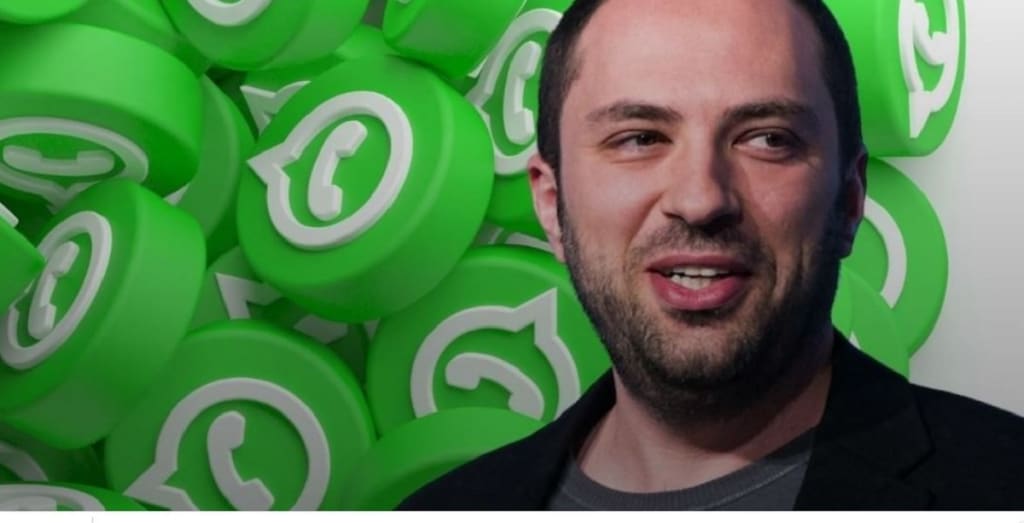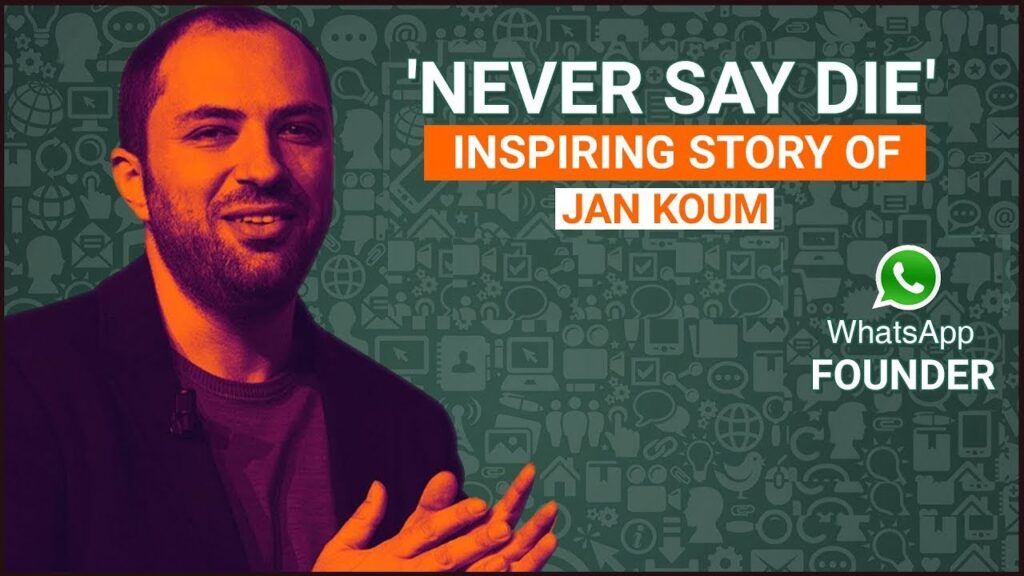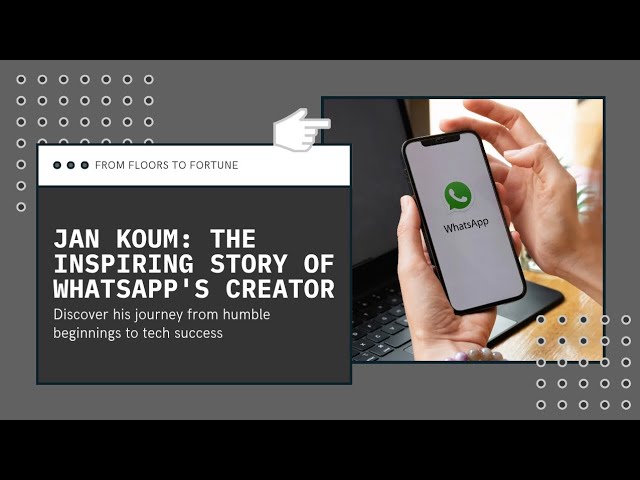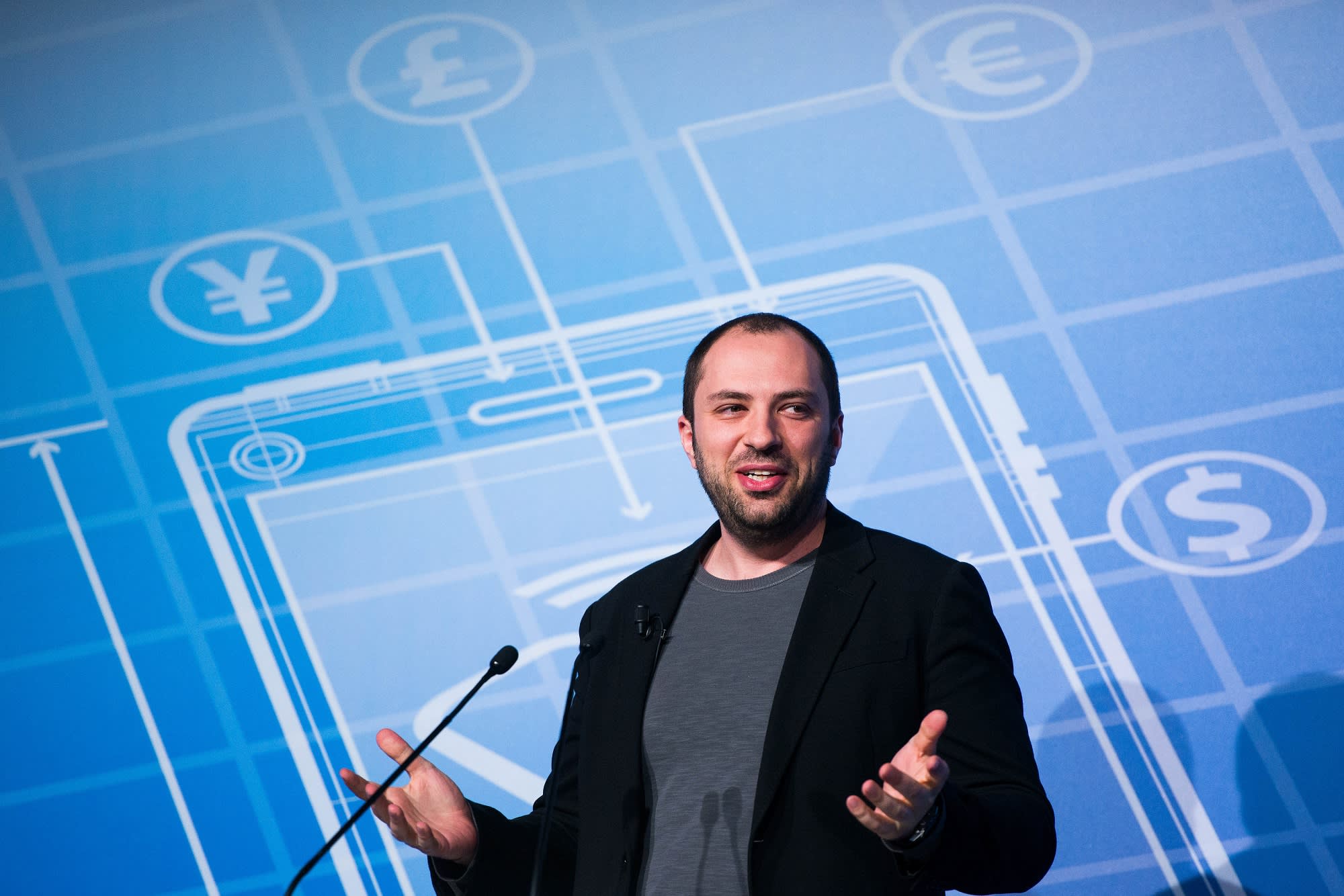
Real Success stories can take many different shapes. While some people begin in tremendous poverty, uncertainty, and hardship, others start with privilege and access. At Vixzaa.com, we highlight genuine stories and real success – accounts of individuals who overcame adversity to create remarkable lives.
The tale of WhatsApp co-founder Jan Koum is one example. Jan’s story is a shining example of tenacity, ingenuity, and humility—from waiting in food stamp lines as a youngster to selling his firm to Facebook for over $19 billion.
From Ukraine to the United States: A Lowly Start
In 1976, Jan Koum was born in a small Ukrainian hamlet close to Kyiv. He had many challenges as a child growing up under Soviet control, including scarce resources and social and political unrest. His mother made the tough choice to go to the US in search of a better life when he was sixteen years old.
After arriving in California, they took up residence in a modest two-bedroom apartment. Food stamps, assistance, and sporadic cleaning jobs were how they made ends meet. While Jan worked part-time, her mother was a babysitter.
Despite the challenging situation, Jan used textbooks he obtained from a nearby used bookshop to teach himself how to program. Initially lacking a computer, he would write code on paper and then rehearse at a friend’s house.
The first chapter of his real success began with this resolve.

Education and Early Career
Jan Koum never attended school the conventional way. Despite enrolling at San Jose State University, he never completed his degree. He chose to concentrate on his love of computer programming instead. He became well-known in the tech industry after joining a gang of programmers and hackers.
Because of his abilities, he was hired as an infrastructure engineer at Yahoo! in 1997. Jan collaborated closely with Brian Acton, another Yahoo! engineer, for almost ten years before he became his business partner.
In addition to learning about the technical aspects of internet services, Koum and Acton also learnt about the shortcomings of banner adverts, invasive data tracking, and the absence of user-first communication platforms when they were employed at Yahoo!.
WhatsApp: The Revolutionary Concept

Both Jan and Brian took a year off to travel and unwind after departing Yahoo! in 2007. However, the notion of developing something straightforward, safe, and practical continued to simmer in their thoughts.
Jan bought an iPhone in 2009. He soon saw that everything, including communication, will be altered by the App Store.
He thought: What if there existed an app that made it possible for individuals to communicate with each other simply and securely, without the use of gimmicks or advertisements?
The moment was ideal. aWhatsApp Jan Koum.
Jan gave it the moniker “What’s Up,” which is a popular greeting. The goal was to develop an easy-to-use platform that would allow users to message anyone on their contact list without the need for intrusive advertisements, popups, or other distractions.
Real Success Challenges Behind the Scenes
WhatsApp’s early years weren’t without challenges.
When Jan Koum sought for a job on Facebook, Facebook rejected his application.
Twitter rejected him as well.
He didn’t give up, though.
Actually, being turned down by these businesses strengthened his determination to start his own business. He and Acton provided all of the funding for WhatsApp’s development, avoiding outside investors and maintaining the app’s ad-free status.
Exploiting user data was not something that Jan Koum supported. He supported privacy, a viewpoint that is becoming more and more uncommon in the digital era.
At initially, WhatsApp expanded gradually, mostly through word-of-mouth. However, its simplicity and dependability were what set it apart. It provided end-to-end encryption, was cross-platform, and didn’t require usernames or passwords.
By 2013, WhatsApp boasted more than 200 million
The Facebook Acquisition: A \$19 Billion Moment

Jan Koum’s life took a permanent turn in 2014.
Facebook paid an incredible ~$19 billion to purchase WhatsApp, which at the time was the biggest acquisition in Facebook’s history.
This was the ultimate real success story for a man who had previously been on food stamps, and it was more than simply a financial victory.
Jan, though, remained the same. He kept working at WhatsApp even after the acquisition, making sure the app was private and user-centered. On the same steps of the welfare office where he used to wait in line with his mother, he famously signed the acquisition agreement.
Holding Fast to His Principles
The fact that Jan Koum stayed loyal to his principles is among his most amazing qualities. He wasn’t a billionaire when he founded WhatsApp. He created it in order to address a problem and safeguard users from data misuse.
Jan resisted efforts to use WhatsApp for advertising revenue even after Facebook was acquired. He eventually resigned in 2018 due to his disagreement with Facebook’s leadership on privacy and user data.
Not only did he leave behind a riches, but he also left with his morals unaltered.
Tradition and Motivation
A real-life illustration of what may happen when perseverance and vision are combined is Jan Koum.
- He didn’t come from a wealthy family; * He didn’t complete his education. He was turned down by big tech firms.
He co-founded one of the most popular messaging apps ever, though, not because he was following a fad but rather because he thought it was a genuine problem that needed to be solved.
There are currently more than 2 billion WhatsApp users worldwide. Additionally, Jan Koum keeps funding initiatives that support his fundamental conviction that users’ privacy should be respected.
Important Lessons Learned from Jan Koum’s Actual Success Story
- Your future is not defined by your humble beginnings.
Jan grew up in poverty, but he didn’t let it stop him. - Skills are more important than qualifications
- He self-learned programming without a formal degree. Solve real problems** WhatsApp succeeded because it addressed real communication needs simply and securely.
- Stick to your values** Even after making billions, Jan prioritized privacy and user trust over profits.
- Rejection is not the end , Despite being turned down by Twitter and Facebook, Jan persisted and created something greater.
Concluding remarks

Jan Koum’s path embodies the genuine accomplishments and real stories that we celebrate at Vixzaa.com.
His journey from welfare lines to creating a billion-dollar business without flaunting or selling out is about more than just money; it’s about vision, purpose, and perseverance.
Remember Jan if you ever want to give up because you think your dreams are too distant. Despite not having the finest resources, the best school, or even the best luck, he was resolute, had a genuine problem to address, and had the guts to remain true to himself.
And that was the decisive factor.
For this post, would you like me to include a suggested featured image, permalink title, meta description, or social media caption?

